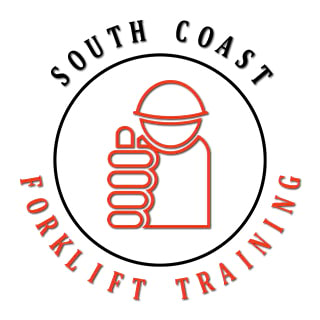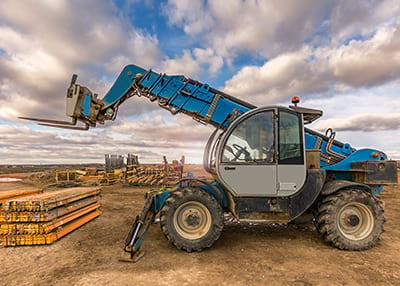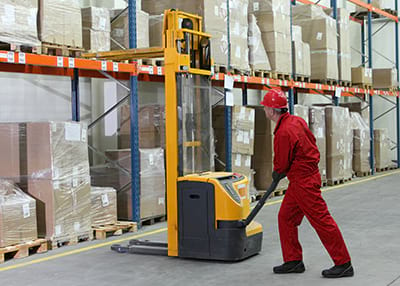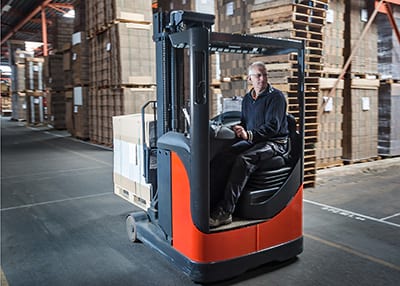Counterbalance Forklift Training
Home / Forklift Courses / Counterbalance Forklift Training
Counterbalance Forklift Training
Become Fully Licensed to Operate
At South Coast Forklift Training, our mission is to deliver top-notch counterbalance forklift training, producing highly skilled operators ready to apply their training in the workplace. We believe in challenging our trainees to bring out their best, and we achieve this by delivering our sessions in a relaxed and friendly atmosphere.
Course Highlights:
Our courses include classroom-based theory lessons and practical sessions using the counterbalance lift truck. Following ITSSAR guidelines and the Health and Safety Commission’s Approved Code of Practice, we ensure employers meet their legal obligations to provide adequate training for all counterbalance forklift operators.
We use various techniques to cater to all learning preferences, including forklift models, videos, PowerPoint presentations, worksheets, and handouts. Theory work builds gradually, allowing time to absorb information before moving to the next stage. Practical lessons are demonstrated, and trainees are given ample time to practice under close supervision.
Why Choose Our Training?
We pride ourselves on our expert instructors and dedicated professionals with extensive experience. We offer flexible scheduling to fit your needs and provide certification recognised by employers upon successful completion.
Testing Stages:
- Theory Test: 25 questions with an 80% pass rate.
- Pre-use Inspection Test: Ensuring the truck is safe to use.
- Practical Skills Test: A timed and scored test involving various manoeuvres that must be completed safely.
While the word “test” can be intimidating, we are here to guide trainees through each section with support and encouragement.
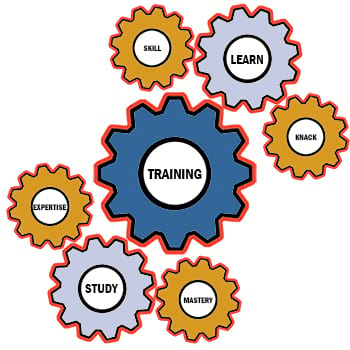
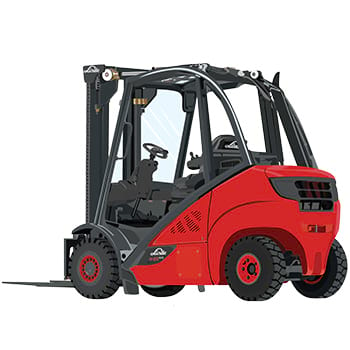
The Counterbalance Forklift Truck
The Most Common Forklift Truck in Use Today
The counterbalance forklift, also known as a counterbalance truck, is the most common type of forklift truck today. These versatile machines are essential in warehouse and construction environments, capable of moving freight indoors and outdoors. “Counterbalance” refers to the large weight positioned at the rear, which counterbalances the load carried at the front. This design eliminates the need for additional stabilisers.
Counterbalance forklifts come in various sizes. Smaller models, typically three-wheeled, can handle loads of around one tonne, while larger models can manage loads exceeding 50 tonnes, often used for moving full containers. These trucks are compact and extremely manoeuvrable. The operator sits behind the forks within a protective structure that safeguards against falling objects and provides protection if the truck tips over. The steering is controlled from the rear, with the front wheels driving and bearing the weight.
Counterbalance forklifts can be powered by electricity or internal combustion engines. Electric models use batteries, with traditional lead-acid batteries being the most common. However, lithium-ion batteries, which offer faster charging and are almost maintenance-free, are gaining popularity. Internal combustion models are typically fuelled by diesel or liquid petroleum gas (LPG), with the power source positioned under the driver’s seat.
COUNTERBALANCE TRAINING FROM A COMPANY THAT CARES
Counterbalance Forklift Course Specifications
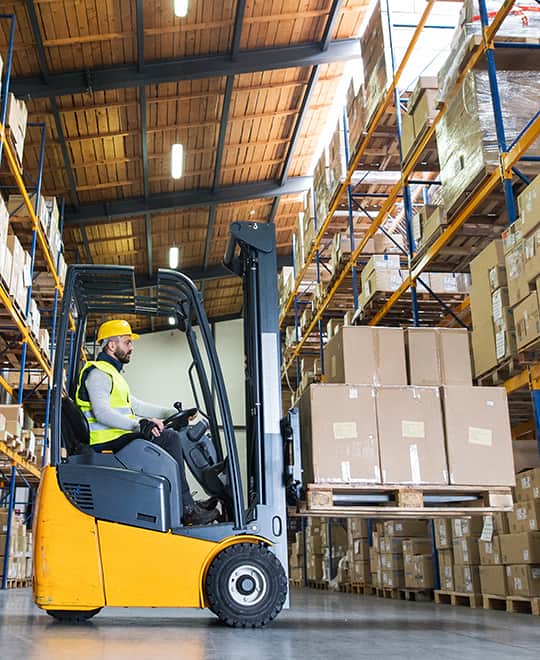
Machine:
Counterbalance (Rider)
Category:
B1
Specification:
Maximum 5 tonne lifting capacity
Accrediting Body:
Independent Training Standards Scheme & Register (ITSSAR)
Maximum Ratio:
3 : 1 : 1 (3 operators, 1 instructor, 1 machine)
Duration:
Novice - 1 operator = 3 days, 2 operators = 4 days, 3 operators = 5 days
Experienced - 1 operator = 2 days, 2 operators = 2 days, 3 operators = 3 days
Safety Refresher - 1 operator = 1 day, 2 operators = 1 day, 3 operators = 1 day
Conversion - contact us
Cost:
Contact us
COURSES DESIGNED TO DELIVER RESULTS
Counterbalance Forklift Course Breakdown
The following list is the elements that make up a novice counterbalance forklift course. For experienced operators, safety refresher and conversion courses the list would be shorter.
- Course induction
- The need and reasons for training and statutory requirements (HASAWA 1974 etc.)
- Introduction to equipment/control familiarisation/principles of operation
- Identification/use/adjustment of attachments in pre-determined positions including forks
- Recommended mount and dismount
- Introduction to motive, steering controls and practice
- Basic steering exercises – simple courses
- Advanced steering exercises – figure of 8/chicane/90° approaches
- Battery charging procedures/maintenance
- Operator safety code and relevant handout
- Daily pre-use inspections/refuelling procedures
- Engineering principles/rated capacity/stability
- Simple hydraulics (theory)
- Introduction to hydraulic controls, handling empty pallets low-level
- Load types/handling and weight assessment
- Stacking/de-stacking at low, medium and high levels on industrial racking*
- Stacking/de-stacking at low, medium and high levels bulk stacks*
- Stacking/de-stacking at low, medium and high levels cup post pallets*
- Manoeuvring with loads/ramps and inclines/handling awkward loads*
- Relevant safety film
- Vehicle loading and unloading (theory)*
- Vehicle loading and unloading (practical)*
- Multi-choice theory test
- Pre-use inspection test
- Practical skills test
* To be covered where relevant to operation or facilities permit
WHATEVER YOUR LEVEL, WE HAVE YOU COVERED
From in-depth beginners to safety refresher courses
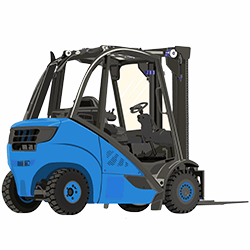
ITSSAR-Accredited Counterbalance Forklift Training
All courses are ITSSAR-accredited and recognised throughout the industry.

Novice Level Training
Trainees with little or no previous experience operating the relevant truck.

Experienced Level Training
Trainees with relevant, recent experience who have not received any approved training.

Safety Refresher Training
Periodic forklift refresher training for experienced operators who hold an accredited certificate.

Conversion Training
Training on a truck of a similar level to the one that the operator has already been trained, tested, and certified on.
Delivering the best for your buisiness
Our courses are designed to achieve results
On-Site Counterbalance Forklift Courses
Every counterbalance forklift course we deliver is carried out on our customer’s premises. This approach gives trainees the advantage of being trained and tested on a machine familiar to them, eliminating the need for re-learning on a different truck after the initial training. Upon completing this counterbalance course, operators will know how to use these machines safely and efficiently.
We are pleased to offer bespoke training programmes tailored to your business requirements. We will always work around your needs and environment to minimise disruption.

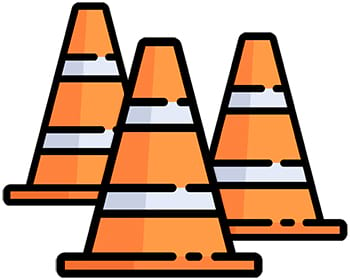
Facilities Required
Firstly, and most importantly, we will need access to your counterbalance forklift truck to conduct your training. Additionally, we require an undisturbed area with ample space for basic manoeuvres and testing. Pallets and realistic loads appropriate to your business are useful; the instructor will provide traffic cones. For the theory lessons, sufficient space is needed for the instructor and trainees to work. A small office with a table, chairs, and power will suffice.
All forklift operators must wear safety boots and other personal protective equipment per the company's internal risk assessments. We supply high-visibility vests.
If you have any questions or concerns about the above requirements, contact us to discuss them.
Counterbalance Forklift Licence Certificates
After completing this counterbalance forklift training, drivers are fully licensed to operate this category. The qualification is nationally recognised and accepted throughout the industry.
Participants will also receive the following:
- An A4 ITSSAR-approved counterbalance forklift certificate of basic training*
- A plastic photo identification card*
- A written assessment of strengths and weaknesses*
Additionally, operators are entered or edited onto ITSSAR’s TOPS (Trained Operator Passport Scheme) database for future reference.
\*There is no additional charge for these.

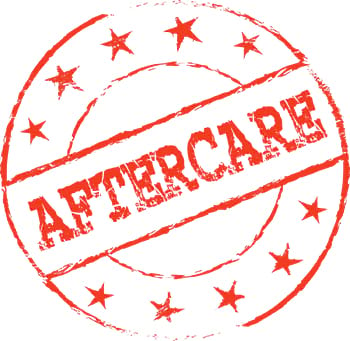
Five-Star Aftercare
Our service doesn't end with your training. At South Coast Forklift Training, we pride ourselves on our exceptional aftercare. This sets us apart from the competition and is one of the many reasons our clients return to us. We're always here to answer any questions and offer advice.
Additionally, after completing our training courses, clients receive:
- Warning when refresher training is due
- All relevant Health and Safety documentation
- Refuelling/recharging poster
- Seven-day pre-use inspection checklist
- Authorisation to operate lift trucks form
- Employer's training record form
Ready to Get Started?
Choose the ITSSAR-accredited training provider that will work with you to deliver high-quality counterbalance forklift training at your business premises.
Other Accredited Training Courses
Telehandler Training
Rough terrain telescopic trucks are indispensable on construction sites and farms. Equipped with large tyres and high ground clearance, they excel in difficult terrains. Many models also feature stabilising legs for enhanced stability and safe operations.
Pallet Stacker Training
Pedestrian pallet stackers are perfect for handling Euro Pallets. They are highly manoeuvrable, excel in narrow aisles, and can lift pallets into and out of racking systems. Some models can lift more than 1.6 tonnes to heights over 6 metres.
Reach Truck Training
Reach trucks are staples in warehouses, celebrated for their exceptional manoeuvrability and ability to access high racking. They are typically chosen for tasks prioritising height over weight, making them perfect for organised, vertical storage solutions.
APPROVED FORKLIFT LICENCES AND CERTIFICATES
Quick Answers to Common Questions
If we haven’t covered all your questions already, please check out more frequently asked questions or contact us.
No wonder our clients keep coming back
Feedback from our trainees

"The instructor was very thorough and extremely patient and persistent and encouraging."
DB, Emsworth, West Sussex

"Adaptable to the individual being able to gauge how well I understood the topics and arrange the course to suit."
OD, Portsmouth, Hampshire

"Very thorough explanations of all aspects of the course. Explained all information very well."
MS, Southampton, Hampshire
⭐ Want to see more? Check out our Google reviews.
The Health and Safety at Work Act 1974
“It shall be the duty of every employer to ensure, so far as is reasonably practicable, the health, safety and welfare at work of all his employees.”
